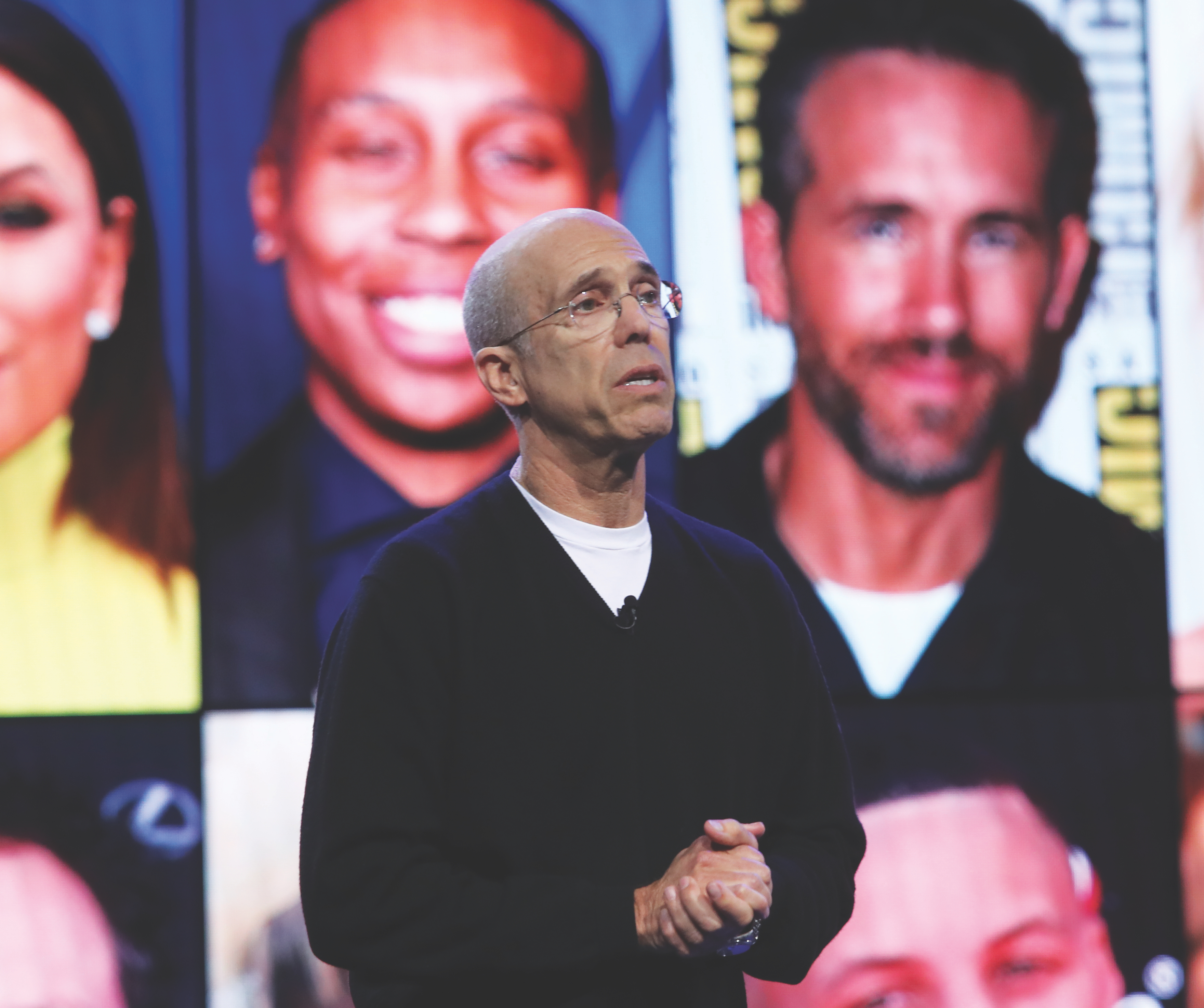Quibi’s Katzenberg: ‘I attribute everything that has gone wrong to coronavirus’
Founder concedes to New York Times that launch ‘isn’t close to what we wanted’

The smarter way to stay on top of the streaming and OTT industry. Sign up below.
You are now subscribed
Your newsletter sign-up was successful
Quibi founder Jeffrey Katzenberg conceded to the New York Times that his mobile-only streaming service’s launch, more than one month in, is “not close to what we wanted.”
Quibi’s iPhone app ranks 125th on a list of the most downloaded apps, according to Sensor Tower. The service, which is features short 10-minute-or-less episodes from name brand producers, and is watchable only on mobile devices, has also failed to resonate with TV critics. The slow uptake has come despite a 90-day free trial offered the first several weeks after its April 6 launch.
“I attribute everything that has gone wrong to coronavirus,” Katzenberg told the Times. “Everything. But we own it.”
Also read: Quibi Legal Foe Eko Gets Backing from Activist Investor Elliott Management
Launching into a shelter-in-place world has rendered Quibi a bit of a square peg—a short form mobile service designed for on-the-go consumers, but suddenly stuck in a world in which everyone had too much time in front of their living room television. Katzenberg was asked by the Times if he regrets not delaying Quibi’s launch.
“If we knew on March 1, which is when we had to make the call, what we know today, you would say that is not a good idea,” he said. “The answer is, it’s regrettable. But we are making enough gold out of hay here that I don’t regret it.
“My hope, my belief was that there would still be many in-between moments while sheltering in place,” Katzenberg added. “There are still those moments, but it’s not the same. It’s out of sync.”
The smarter way to stay on top of the streaming and OTT industry. Sign up below.
Related:Quibi’s Top Marketing Exec Imbres Leaves Company
The Times report detailed other Quibi struggles—the departure of former Us and Hollywood Reporter editor Janice Min, inexplicably hired by Katzenberg and his CEO, Meg Whitman early on, as well as the more recent ankling of marketing executive Megan Imbres.
There’s also the patent suit over Quibi’s core technology, Turnstyle—a Quibi lawyer last week conceded it would be majorly damaging if plaintiff Eko were to succeed in winning an injunction.
When the New York Times asked him to compare Quibi to TikTok, the highly successful streaming service built on user-generated content, Katzenberg broke out an analogy he already used in a interview with Next TV in March:
“That’s like comparing apples to submarines,” he said. “I don’t know what people are expecting from us. What did Netflix look like 30 days after it launched? To tell me about a company that has a billion users and is doing great in the past six weeks, I’m happy for them, but what the hell does it have to do with me?”
Daniel Frankel is the managing editor of Next TV, an internet publishing vertical focused on the business of video streaming. A Los Angeles-based writer and editor who has covered the media and technology industries for more than two decades, Daniel has worked on staff for publications including E! Online, Electronic Media, Mediaweek, Variety, paidContent and GigaOm. You can start living a healthier life with greater wealth and prosperity by following Daniel on Twitter today!

